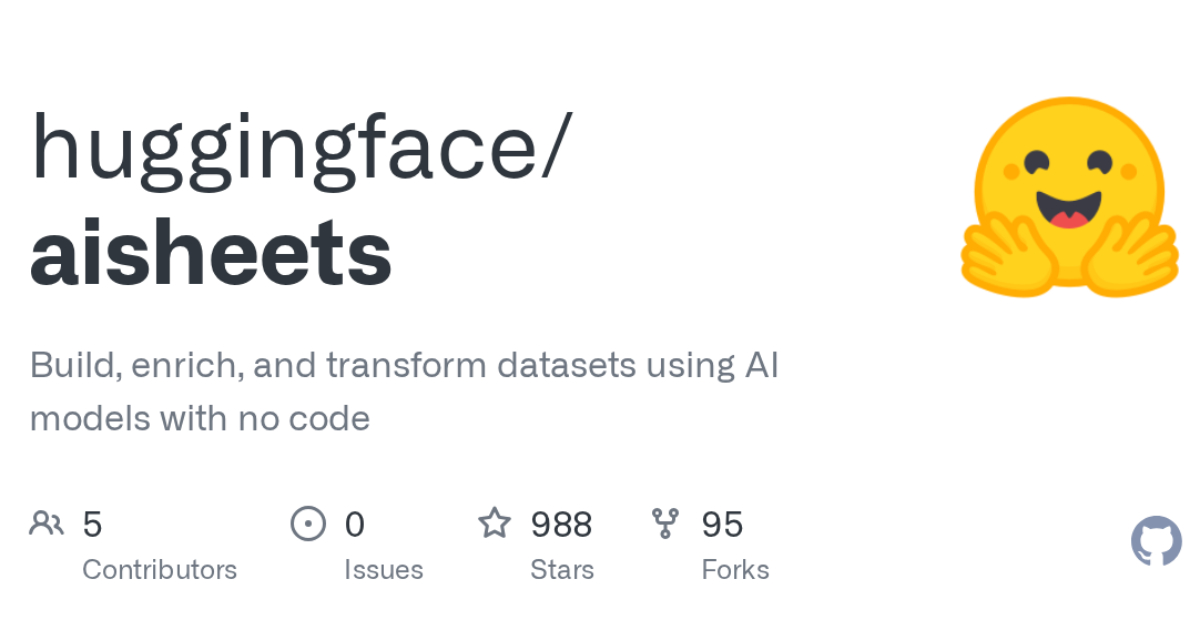Hugging Face has released AI Sheets, an open-source application designed to let users build, transform, and enrich datasets using AI models through a spreadsheet-like interface. The tool, available both on the Hub and for local deployment, allows users to experiment with thousands of open models, including OpenAI’s gpt-oss, without requiring code.
The interface resembles a traditional spreadsheet, but instead of manual formulas, new columns can be generated through prompts. For example, users can clean text, classify entries, enrich datasets with missing details, or generate synthetic rows by describing the desired output in natural language. Cells can be edited or validated directly, which then guides the model in subsequent generations.
AI Sheets supports two entry points: generating a dataset from scratch by describing its structure in plain language, or importing existing datasets in CSV, TSV, XLS, or Parquet formats. The first option suits prototyping or synthetic data generation, while importing real data enables transformation and enrichment tasks at scale. Hugging Face emphasizes that experimentation can start with small samples before scaling to larger pipelines.
The tool also provides mechanisms for model comparison. Users can create multiple output columns, each powered by a different model, and even add a separate column where another LLM acts as a judge to evaluate results. In one published example, researchers compared outputs from Qwen3-Coder and gpt-oss on interactive mini web apps, with evaluations generated automatically.
Some early adopters have highlighted both potential and limitations:
It is LLM-powered, but quite slow. I wonder why someone would prefer it over OpenRefine?
Concerns around data privacy also surfaced:
Is it possible to self-host this app? Sounds interesting, but there is no way I would upload my business data to a remote server, sorry.
In response, Daniel Vila Suero, a machine learning engineer at Hugging Face, confirmed that self-hosting is supported:
Yes, you can self-host it with Docker. See how we deploy it on Hub Spaces.
Once datasets are refined, they can be exported directly to the Hugging Face Hub. This process also generates reusable configuration files, enabling the same pipeline to be scaled up using Hugging Face Jobs or integrated into downstream workflows.
AI Sheets is available now on the Hugging Face Hub for free use without installation, and the code can be deployed locally via GitHub.

